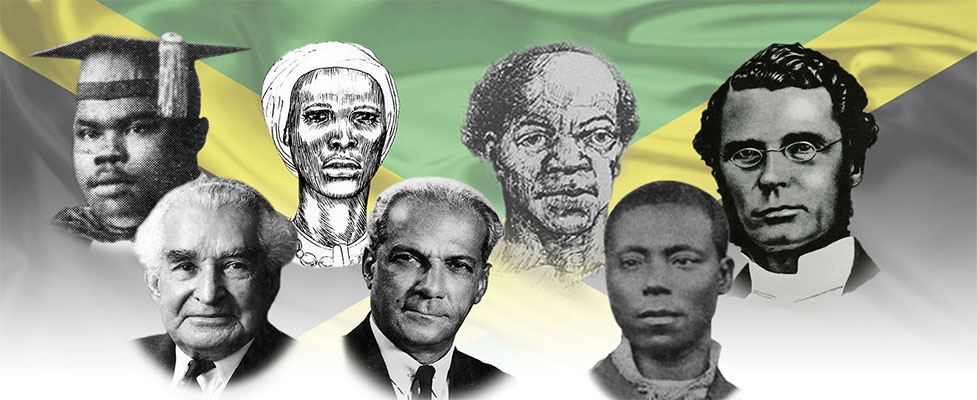A Day of Reflection: The Impact of National Heroes Day
National Heroes Day is a profound and cherished observance in Jamaica, celebrated on the third Monday of October each year. This day honors the contributions of individuals who played pivotal roles in the nation's history, particularly those who fought for freedom, justice, and equality. The significance of this day extends beyond mere remembrance; it embodies the spirit of resilience, pride, and national identity.

Historical Context
National Heroes Day was first observed in 1969, during a time when Jamaica was solidifying its independence and seeking to forge a national identity. The day serves as a reminder of the sacrifices made by these heroes, who laid the groundwork for the country’s development and sovereignty. It is a time for Jamaicans to reflect on their history, acknowledging both the struggles and triumphs that have shaped the nation.
Honoring the Heroes
The list of national heroes includes notable figures such as:
Marcus Garvey: Born in 1887, Garvey was a leader in the movement for self-determination for people of African descent, founding the Universal Negro Improvement Association. His philosophy emphasized race pride and the need for African unity.
Nanny of the Maroons: A legendary figure and military leader, she fought against British colonization in the 18th century and is celebrated for her role in inspiring her people to resist oppression.
Paul Bogle: A Baptist deacon who led the Morant Bay Rebellion in 1865, Bogle protested against social injustice, paving the way for significant changes in the judicial system.
George William Gordon: A political advocate and landowner, Gordon fought for the rights of the freed people and was executed for his role in the Morant Bay Rebellion.
Samuel Sharpe: The instigator of the 1831 Slave Rebellion, Sharpe’s leadership was instrumental in the abolition of slavery in Jamaica.
Alexander Bustamante: As the first Prime Minister of independent Jamaica, Bustamante championed the working class and founded the Jamaica Labour Party.
Norman Manley: A lawyer and politician, Manley was a strong advocate for universal suffrage and played a key role in Jamaica's path to independence.
These figures are not just historical icons; they symbolize hope and resilience, reminding Jamaicans of their rich cultural heritage and the ongoing fight for social justice.
Cultural Significance
National Heroes Day is marked by various celebrations across the country, including parades, memorial services, and educational programs. Schools often take this opportunity to teach students about the contributions of these heroes, fostering a sense of pride and identity among the younger generation.
In the week leading up to National Heroes Day, Jamaica also observes National Heritage Week, which includes a national religious service organized by the Church of the Province of the West Indies (CPNRS) and replicated in each parish. The week culminates in the National Honours and Awards Ceremony, recognizing individuals who have made significant contributions to the nation.
The Jamaica Cultural Development Commission (JCDC) typically organizes events during this week, featuring cultural performances, exhibitions, and community activities that highlight Jamaica’s heritage. These initiatives encourage widespread participation and engagement, reinforcing the significance of the day.
Economic Impact
National Heroes Day also plays a notable role in Jamaica's economy, affecting various sectors in significant ways. Here are some key areas where the observance influences economic activity:
- Tourism Boost: National Heroes Day attracts both local and international tourists who are interested in cultural events and historical significance. Many visitors come to experience the parades, ceremonies, and community celebrations, leading to increased bookings in hotels, restaurants, and local attractions. This influx not only supports the tourism sector but also stimulates spending in surrounding communities.
- Increased Local Spending: The festivities associated with National Heroes Day encourage residents to engage in celebrations, leading to greater local spending. This includes expenditures on food, decorations, clothing, and other goods related to the celebrations. Local businesses, particularly small enterprises, often see a surge in sales during this period, which can help sustain them throughout the year.
- Cultural Promotion: The observance promotes Jamaica’s rich cultural heritage, enhancing the country’s appeal as a tourist destination. Events organized during National Heroes Day can serve as platforms for local artisans, performers, and vendors, allowing them to showcase their talents and products. This not only helps in preserving cultural traditions but also contributes to economic diversification.
- Community Development: National Heroes Day events often involve community participation, fostering local pride and leading to improvements in infrastructure and services. Towns and cities may invest in beautification projects and upgrades to public spaces to prepare for celebrations, resulting in long-term benefits for residents.
- Government Spending: Organizing events requires funding, which stimulates economic activity and creates jobs in planning and management. The government allocates resources to ensure that events are well-executed, which can include hiring local workers and supporting various service providers.
- Increased Employment Opportunities: During the celebrations, temporary jobs are often created in areas such as event management, security, hospitality, and retail. This surge in employment can have a positive ripple effect on local economies, providing income to individuals and their families.
- Legacy Projects: Some of the revenue generated from celebrations can be channeled into community development projects. These legacy projects may focus on education, healthcare, or infrastructure, which can have long-lasting benefits for communities and the nation as a whole.
These economic factors enhance the overall economic landscape of Jamaica, demonstrating that National Heroes Day is not only a celebration of history but also a contributor to contemporary community and economic vitality.
The Challenge of Relevance
As time progresses, some aspects of National Heroes Day's significance may be fading, particularly among younger generations. Factors contributing to this disconnect include:
Generational Shift: Younger people may lack direct connections to historical events, leading to diminished appreciation for national heroes.
Globalization and Cultural Change: Exposure to global media can overshadow local traditions and narratives.
Education Gaps: If educational curriculums do not emphasize the importance of national history, students may not fully appreciate the relevance of the day.
Commercialization: The commercialization of the holiday can shift focus away from its historical significance.
To combat these challenges, communities and leaders can take several steps:
Educational Initiatives: Promote programs that teach the stories and values of national heroes, ensuring that younger generations understand their importance.
Cultural Events: Organize engaging activities to revitalize interest and connect younger generations with their heritage.
Media Engagement: Utilize social media to spread awareness about the significance of National Heroes Day, creating campaigns that resonate with younger audiences.
Community Involvement: Encourage community participation in celebrations to foster a sense of ownership and pride.
Reflection and Unity
Beyond honoring the past, National Heroes Day serves as a catalyst for national unity. It encourages Jamaicans to come together, regardless of their backgrounds, to celebrate a shared heritage. The day prompts discussions about national values, goals, and the importance of working together for a better future.
In a time when societal challenges persist, reflecting on the resilience of national heroes can inspire contemporary efforts toward social justice, equality, and development. The ideals and sacrifices of these figures resonate deeply, reminding Jamaicans of the strength found in unity and the ongoing quest for a just society.
Conclusion
National Heroes Day is more than a commemoration of historical figures; it is a celebration of Jamaican identity, resilience, and the enduring quest for freedom and justice. As Jamaicans honor their heroes, they also renew their commitment to uphold the values these individuals championed. This day serves as a powerful reminder of the past while inspiring a brighter future for all Jamaicans, all while contributing positively to the nation’s economy. By fostering awareness and engagement, Jamaica can ensure that the significance of National Heroes Day remains vibrant and relevant, reinforcing the sense of unity and pride that it embodies.
References
